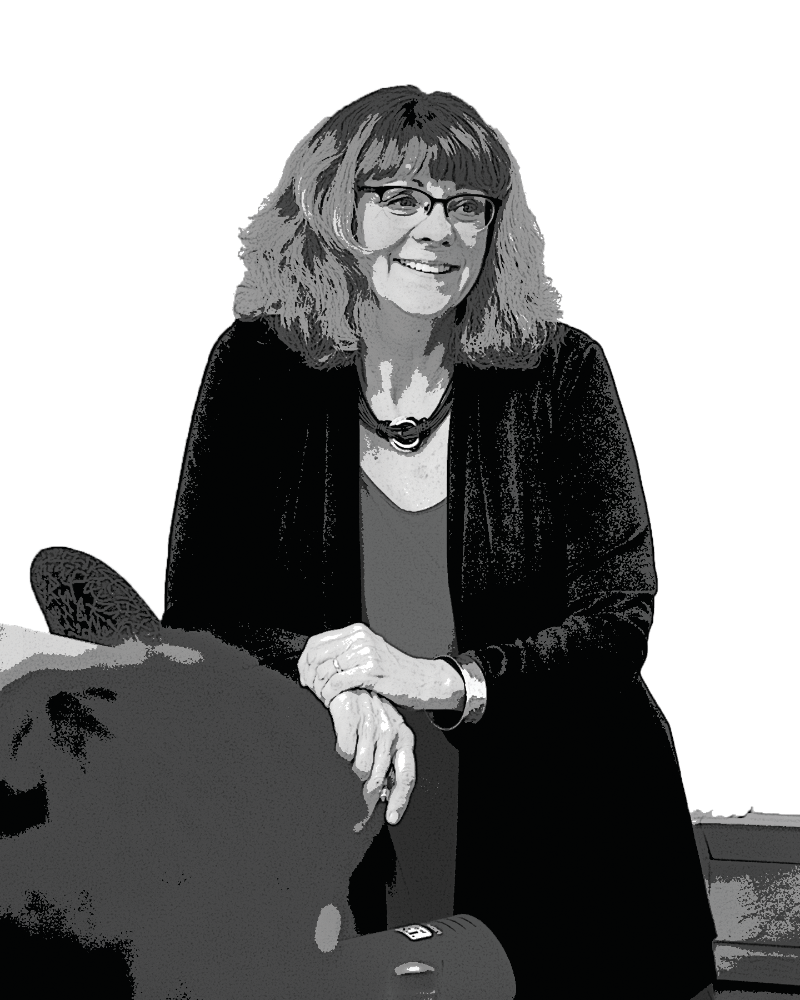By Cheryl Foster
When URI switched to remote learning this spring due to the COVID-19 pandemic, students and faculty adapted. But as anyone will tell you, it wasn’t the same. Professor of Philosophy Cheryl Foster explains that, besides missing each other, students and faculty were missing the sensory and aesthetic variety—the ambient texture—that they experience living, working, and learning on campus.
URI’s Kingston Campus sits atop a gentle hill. On any given weekday, when the trains from New York or Boston glide into Kingston station two miles below, Professor Heather Johnson, director of Writing Across URI, brings her travel writing class to a halt, and everyone listens. Long, steady whistles, wheels scraping rails, and, when the wind blows just right, muffled echoes of the automated station announcement, “Train approaching.”
Meanwhile, at precisely 9:50 a.m. on Mondays, Wednesdays, and Fridays, masses of people hum and flow past the corner of Taft Hall, where G and Dean Earl—that’s Gerald Williams ’92, M.A. ’00, director of Talent Development, and Earl Smith III ’90, College of Arts and Sciences assistant dean—take in the morning air and greet their many friends, students, and colleagues.
Across the Quad, Associate Professor of Plant Sciences Larry Englander shoulders his worn backpack and leads a posse of undergrads from tree to tree, scraping rimey green lichens. In the new engineering center, the scent of coffee hugs the café. Sophomores slip on mud as they lope, late for class, up the Elephant Walk. Mowers buzz, sending the scent of cut grass through windows in Washburn Hall. A few yards southward, traces of formaldehyde haunt the halls of Pastore—where (and I say this in true Rhode Island fashion) all the chemistry labs used to be.

Used to be. That’s how we think about the contours of campus life now that most of us have decamped to remote learning and working. Before COVID-19 forced our retreat to these digital spaces, our days were shaped tacitly by variation. The experience of learning on a college campus is no mere information exchange, not just the intake and outflow of abstract knowledge. It also entails embodied immersion and sensorial variety—the ambient texture of days.
Sensory and aesthetic variation lay powerfully latent in our lives, punctuating the mental demands of study and work through auditory, olfactory, and visual markers. Now, tamped down as our experience is by the flatness of screens and remote work spaces, we sense the loss of those campus places and the ambient texture of them.
Does it matter, though, that we’re learning or working through machines? Isn’t education about the mind? Seventeenth century philosopher and mathematician René Descartes famously concluded that even without a real body, every thought he had proved his existence as a thinking thing: “I think, therefore I am.” And centuries before Descartes, medieval philosopher Ibn Sînâ (Avicenna in European traditions) devised his “Flying Man” thought experiment, wherein an intelligent person—newly born, blindfolded, floating in midair—could apprehend their existence as thinking, as soul—even without awareness of their body.
Yet how dull, indeed, would be an existence stripped bare of our sense and perception! Many Western philosophers have emphasized mind over matter, soul over body, thinking over feeling, but not all ignore the senses as powerful vectors of human experience. Some focus on what it means to be an embodied creature traversing Earth’s forms and terrain.
And we are, after all, embodied creatures yearning for the forms and terrain of campus. We feel the yearning in our joints, sinews, and muscles—the felt weave of place. Distance learning serves its purpose, but until Oculus headsets approach the chimeric quality of the Star Trek Holodeck or the rain-soaked streets of The Matrix, the dissipation of aesthetic complexity in our learning and work lives leaves most of us somewhat deflated.
Joni Mitchell knew this and she put it in a song: “Don’t it always seem to go/That you don’t know what you’ve got/’Til it’s gone …”
But our world isn’t gone; we are just on retreat from its textures. As with all good retreats, this one may enhance what we see, think, and feel upon returning—and lead us to value it anew. •
Professor Cheryl Foster specializes in theoretical and applied aesthetics and environmental philosophy.
